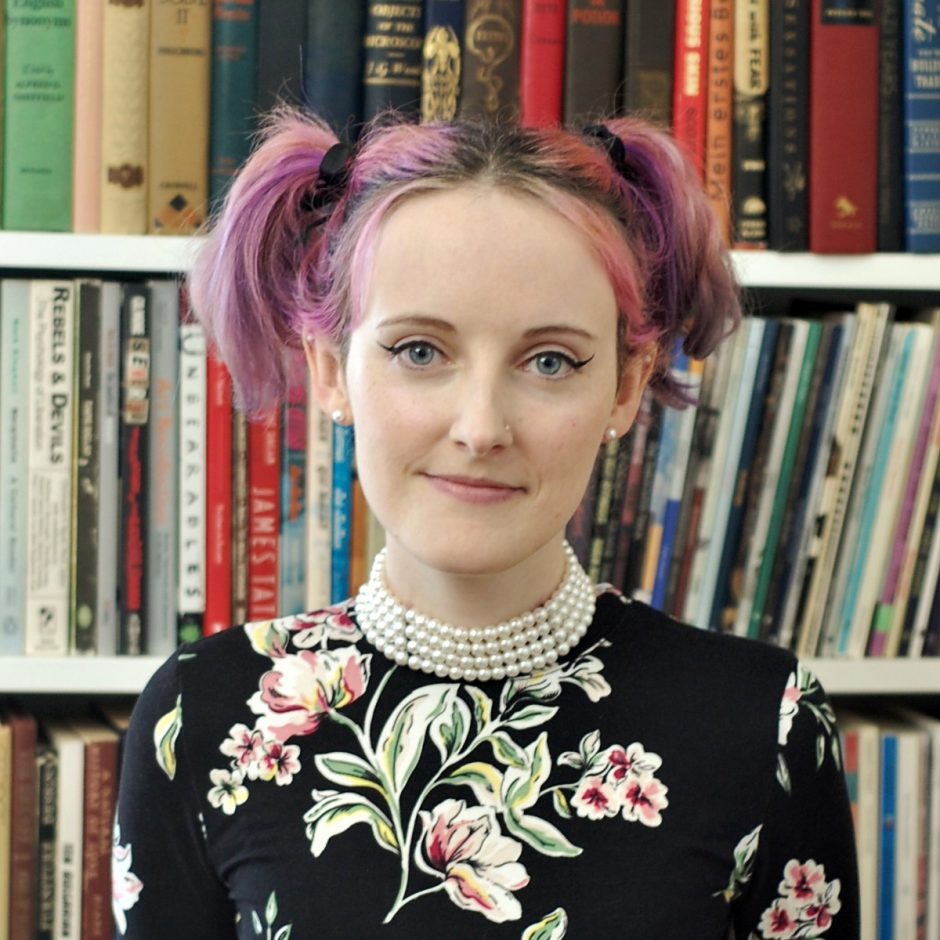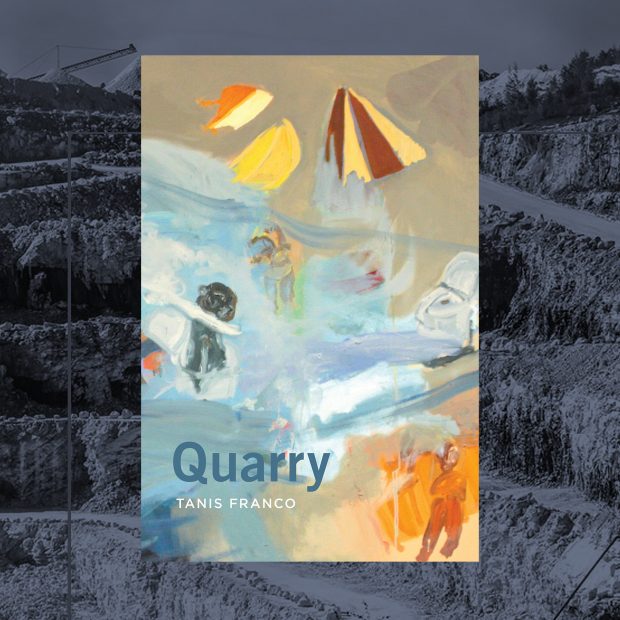USEREVIEW 006: Talking to Stones
Jade Wallace imagines what it would be like to interview Tanis Franco‘s poetry debut Quarry (University of Calgary Press 2019) in this experimental review. Asking questions in their own words and then borrowing and remixing lines from the book to craft ‘answers,’ Wallace literalizes what it means for a text to enter the literary conversation.
ISBN 978-1-55238-981-2 | 80 pp | $17.99 CAD / USD
#CAROUSELreviews
Jade: Let’s begin with the human body. How would you describe it?
Quarry: Anthroposcopy.
Jade: Oh, that’s a much more literal answer than I was expecting. You’ll have to give me a moment to consult my dictionary. Anthroposcopy — the study of the human body by qualitative inspection rather than quantitative measurement. Historically used to assess mentality and morality. Can you give me an example of an anthroposcopic description of the body?
Quarry: The forehead is a plain scarred with grooves from a plow.
Jade: Much like several other metaphors you employ, this metaphor seems to construe the body as a site of history. Wrinkles in the skin testify to past stresses just as clearly as the furrows in a field are evidence that the field was plowed. In this way, the body is a living memory.
Quarry: To what extent is the body aware of its intentions? The body floats in the direction of what it wants. The layers all but forgotten. The history all but forgotten. The most beautiful moment of my life has passed already, and like a room it is empty. I can’t recall that moment. Let’s not deal with memories.
Jade: But the relics of our past remain, whether we attend to them or not. The body can be an archive of history even when that history is not preserved in memory.
Quarry: You can remove the quarry building but the hole is permanent.
Jade: Yes, exactly. It seems to me that this understanding of the body is perhaps especially poignantly exemplified by the trans body. Unsurprisingly then, I notice that you speak a lot about issues of gender and trans identity. Conceptually, maybe at times indirectly, much of your attention is devoted to them, yet the word trans rarely appears. Can you talk more about what trans identity is?
Quarry: The radical statement that is to say that I decide how other people look at me.
Jade: What else does trans connote?
Quarry: A history of changes. Materials from the Lac-Chérie quarry were used in the construction of the Trans Canada highway. Perhaps that’s the point, to change.
Jade: If that’s so, then would you say the body is a record of changes within our collective histories or our personal histories?
Quarry: The global prospect makes the factuality of individual human lives contradictory. I am a bubble floating transparent. Crack me open a club soda and spray me like a wave — who I am doesn’t matter.
Jade: What about the I as a relational figure? The I that is implied by the You, the Self that is the counterpoint to the Other? Does that one matter?
Quarry: You have taken you and made a fantasy. Myth is the ontological experience of time. The thing about me is — I learned autonomy. I can do anything I like. Touching is the act of atoms resisting each other. Touching is resistance.
Jade: I can’t tell if that’s what you really believe or if you’re having me on, so let’s play this next question differently. In another universe, how would you describe the human Self?
Quarry: Like minerals that thrive under pressure — in the spaces of other stones.
Jade: There’s another body-as-land analogy. Yet you do something curiously different in your poem “that there shall be other fire islands.” You ask “fire island … do you remember me, or is your mind like a heart drawn in sand close to shore?” You seem to be suggesting that, just as the body is like the land, the land is also like a body.
Quarry: It is not fully equal, fully the same, but almost.
Jade: That line also seems to imply that the land might have a capacity for memory just as the body does. Do you believe that the land can remember?
Quarry: Nobody knows how deep it is. There is always the possibility of a spark, waiting to happen, under rocks and trash and sand.
Jade: In “dead horse bay” you describe the land as a “history of changes,” a phrase we spoke of earlier in reference to the human body. Let’s talk more now about how the land itself is a history of changes. For instance, the land’s past might be revealed when humans make the land into a quarry. (I’m focusing on the quarry in particular because it is obviously important to you; I mean, it’s part of your structuring conceit.) In a quarry, all of the layers of sedimentary rock that get exposed are evidence of the different faces that the land has had over time.
Quarry: I face what you can’t see. Our precepts different though reflecting your facets. The study turned into a kind of projection.
Jade: Okay, maybe you’re right. Sometimes I don’t quite understand you but I’m trying.
Quarry: Back when we were twenty not so much had happened; over time it would have been possible to tell someone about yourself. Now that we are getting older it is impossible to know everything about someone. My lover and I found a turtle shot through its shell, an exploded diagram of pink, purple and red.
Jade: I take your point. Analysis can be a kind of violence.
Quarry: Critical discomfort. Seeking then questioning then longing then exploring then guilty then still then constricting then tight then willing then exhausted and limp, just as confused as a heart is confused. Isn’t it good to dissolve at Venus’ feet into foam.
Jade: What choices do we have besides discomfort and dissolution?
Quarry: The challenge is to find an action that is not automatic, not to act programmatically. Reading is its own protection. When I die I would like to be reading my favourite book. I already feel a lot like death when I read my favourite book. I have already experienced that then and there was no regret; only bliss. Your versed mouth drops chrysalids and jewels on globergina gravelstone. I want us to be illuminated now and then.
Jade: What makes certain books your favourites? What do they do for you?
Quarry: Argue me to my reconciliation. Reconcile me to my conception. Conceptualize me to my tendency. Tend me to my past.


